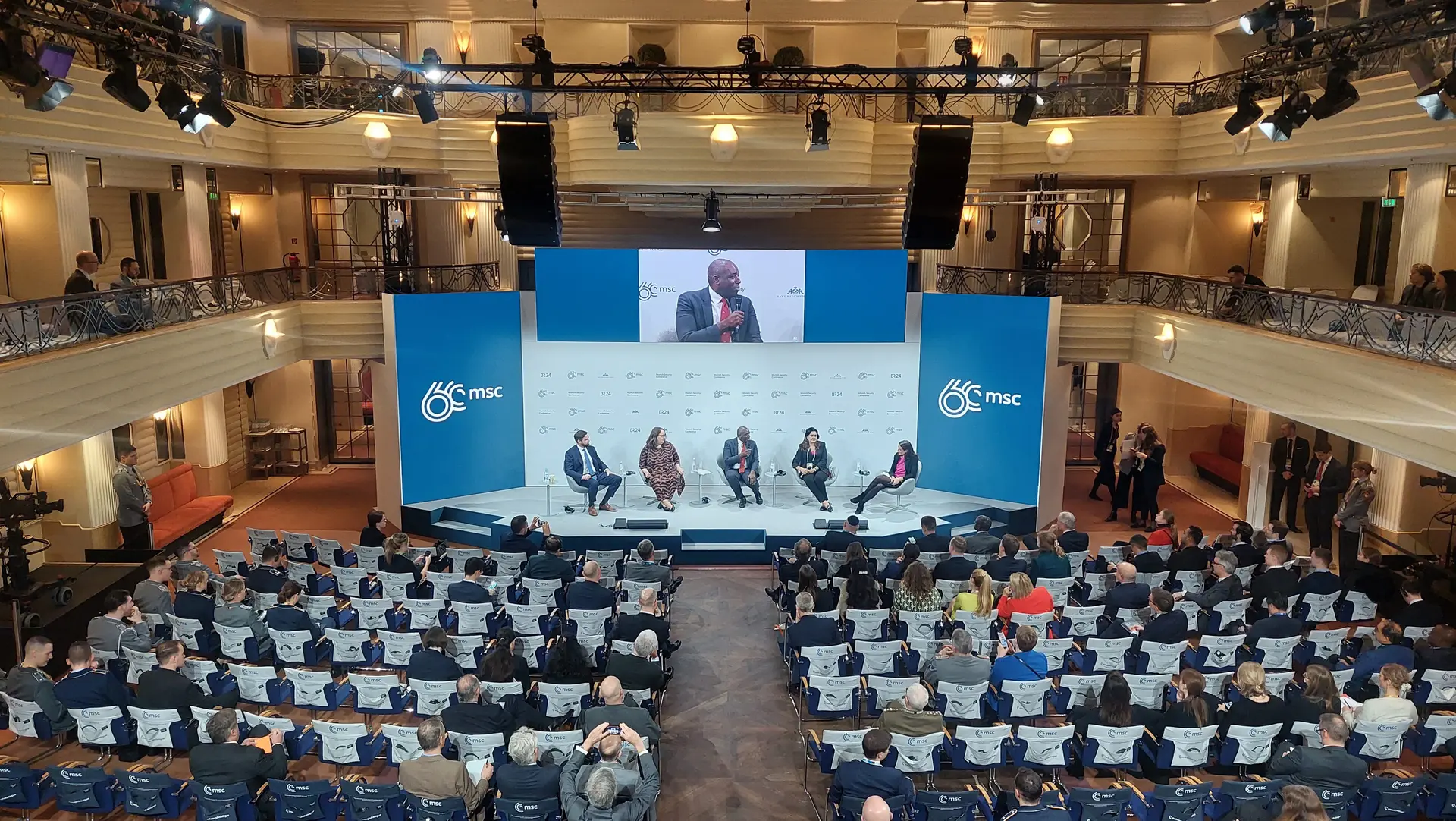Public showcase, geopolitical pulse meter, diplomatic speed dating and a marketplace of ideas - the Munich Security Conference is many things at once. The variety of topics is just as unmanageable as the multitude of formats, ranging from Town Hall Meetings to Bilaterals, Night Caps and the sporting Security Cup. What do we take away from this year's meeting? Four elements stand out:
Representatives from non-OECD countries were present and clearly demonstrated that global politics is becoming more Asian, South American, and African.
Firstly, it was a conference in which the "Global South" had a visible place - and demanded it. Representatives from non-OECD countries were present and clearly demonstrated that global politics is becoming more Asian, South American, and African. This was accompanied by self-confidence and the ambition to shape things, also in contrast to "the West". Subrahmanyam Jaishankar, India's Foreign Minister, made this abundantly clear on a panel with Annalena Baerbock and Antony Blinken when he was asked about his country's cooperation with the BRICS states. His succinct comment: "India has multiple options. Why should that be a problem? It is smart."
Climate change is affecting the water supply in regions with high population growth in Asia and Africa, which raises the risk of increased climate-induced migration in addition to questions of cross-border resource management.
Secondly, the conference made abundantly clear the multitude of overlapping crises that jeopardize important global public goods or make their creation impossible. In addition to the wars in Gaza and Ukraine, there are crises in the Red Sea and the ongoing tensions over Taiwan. Climate change is affecting the water supply in regions with high population growth in Asia and Africa, which raises the risk of increased climate-induced migration in addition to questions of cross-border resource management. Targeted disinformation and the rise of AI coincide with a global super election year. The list is endless. To top it all off, Donald Trump is preparing to return to the White House in the USA - this time with a team that is probably much better prepared. Not only does this challenge NATO's unity, but it may also add another layer of complexity to the multiple crises situation, making it impossible to navigate. The result: collective helplessness among the participants.
In view of the domestic political tensions and the possible election of Trump, but also in view of the USA's foreign policy priorities in the Asia-Pacific region, it became unmistakably clear that the Europeans would have no choice but to make this [editor's note: further military spending] possible.
Thirdly: If another wake-up call was needed for Europeans to care about the security of their continent, it was sent at the MSC. Certainly, the representatives of the Biden administration made a genuine effort to dispel the growing doubts about continued US support for Ukraine. However, Democrats and Republicans at the MSC agreed that the US share of almost 70 percent of total NATO spending is not sustainable. Europe must "do more" in terms of defense spending as well as arms production and support for Kiev. This is certainly not a new demand. However, in view of the domestic political tensions and the possible election of Trump, but also with a view to the US setting foreign policy priorities in the Asia-Pacific region, it has become unmistakably clear that the Europeans will have no choice but to make this possible.
The discussion with the three Russian activists not only highlighted the great courage that political work requires. [...] It also showed that if there is to be change in Russia, it will come from women.
Finally: In addition to the war in the Middle East, Russia was omnipresent. The death of Alexei Navalny was interpreted by many as a clear signal from the Kremlin towards Munich, just hours before the heads of state and government met there. Julija Navalny's appearance provided an emotional moment that is certainly rare in world politics. What remains analytically: "Rogue Russia," as the Eurasia analysts described it in their 2023 risk report, will remain one of the biggest factors of uncertainty in security policy in the coming years. One of the most impressive panels of the entire conference was the Townhall Meeting with Zhanna Nemtsova, Irina Shcherbakova and Ekaterina Schulmann. The discussion with the three Russian activists not only illustrated the great courage that political work requires in a country where simply laying flowers for Navalny, who was killed, is seen as resistance to state power. It also showed that if there is to be change in Russia, it will come from women. Alongside the many sobering insights, this was a hopeful thought to take away from the security conference.
This article originally appeared in the Uni Erfurt's German language blog WortMelder


